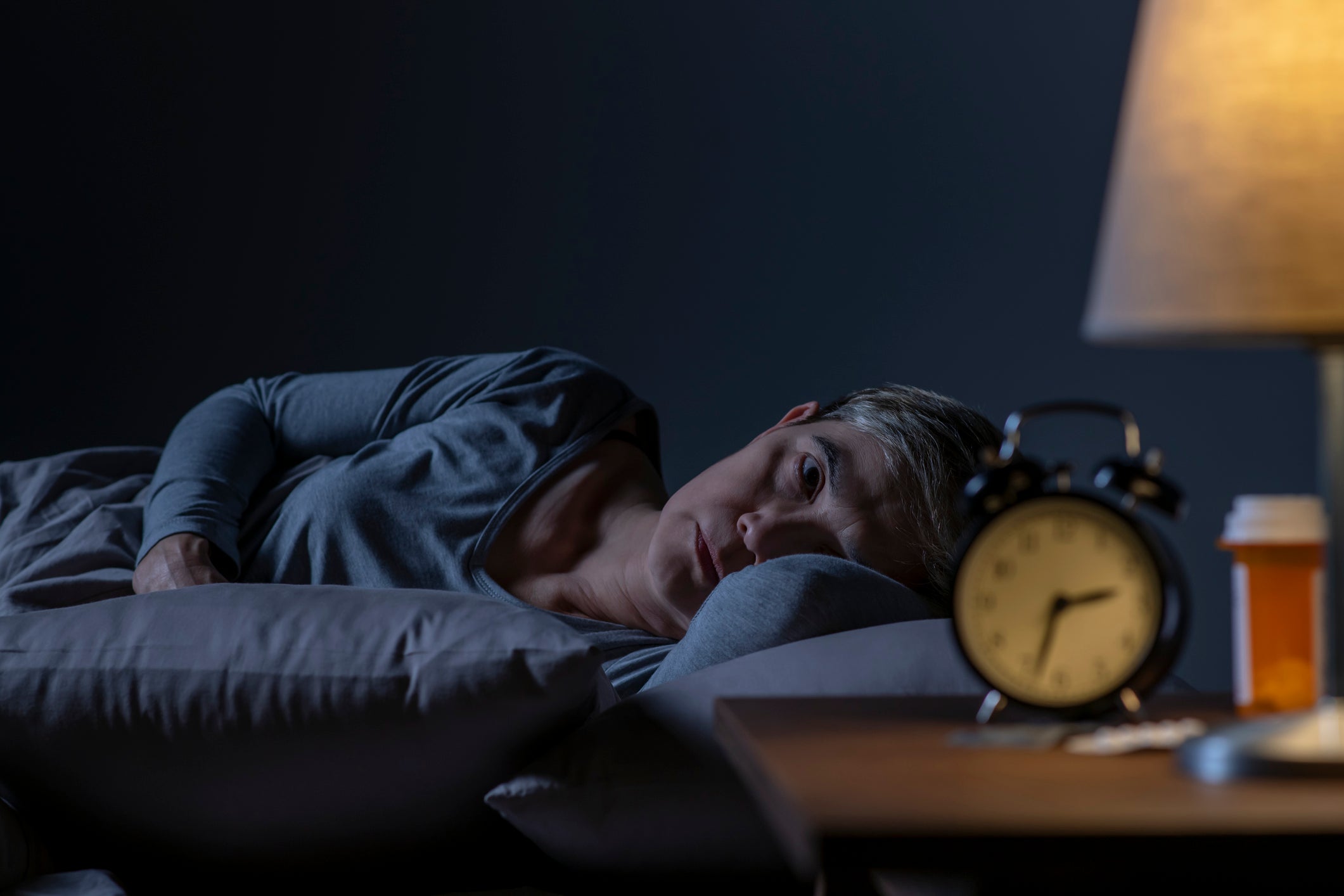Getting the correct amount of sleep is essential for improving your health, yet millions of us struggle to get enough of it.
While it’s normal to struggle with sleeping from time to time, long-term sleep deprivation can take a serious toll on your health.
Dr Deborah Lee, a sleep expert at Dr Fox Online Pharmacy, has said that a serious lack of sleep can have consequences for your physical and mental wellbeing, such as mood swings, as well as underlying health conditions such as sleep apnoea, insomnia, or depression.
According to the NHS, longer-term sleep problems can affect our relationships and social life, and leave us feeling tired all the time, eating more and not able to do daily tasks. Symptoms of sleep issues can include waking up several times in the night, struggling to fall asleep, feeling irritable and having trouble concentrating throughout the day.
“Many people think of sleep as something that can be compromised or 'caught up on later,' but chronic sleep deprivation can take a serious toll on your health,” Lee said in collaboration with Bed Factory Direct.
Dr Lee has outlined six key signs for when it’s time to speak to your doctor about your sleep, so that they can identify the underlying cause and develop a treatment plan.
Here are the six key warning signs...
1. Feeling constantly tired despite adequate rest time
Dr Lee says that if you’re consistently feeling tired during the day, even after getting what should be enough sleep, it could signal a more serious underlying problem.
“Chronic fatigue can be a sign of sleep disorders such as sleep apnoea or narcolepsy, which prevent restful, restorative sleep, leaving you feeling exhausted even after a full night’s sleep,” she says.

2. Difficulty falling asleep or staying asleep
Struggling to fall asleep or waking up multiple times in the night could also be indicative of different sleep or mental health-related issues.
“It’s another red flag,” said Dr Lee. “The concern here is that these sleep disturbances, especially when they persist for several weeks, may indicate conditions like insomnia, anxiety, or even depression.”
3. Mood swings and irritability
Sleep deprivation doesn’t just affect your energy; it can impact your emotions throughout the day and how you interact with others.
“If you’re finding yourself increasingly irritable, anxious, or depressed, it could be a sign that your body isn't getting the quality sleep it needs to regulate mood,” says Dr Lee. “Lack of sleep can interfere with the brain's ability to process emotions, leading to mood swings and heightened stress.”
4. Difficulty concentrating or problems with your memory

“Cognitive issues such as trouble focusing, forgetfulness, or brain fog are common signs of sleep deprivation. When we don’t get enough sleep, the brain doesn’t have the opportunity to consolidate memories or perform essential restorative functions,” says Dr Lee. “Over time, this can result in difficulty concentrating and impaired decision-making.”
5. Increased chronic health problems
“Long-term sleep deprivation is linked to an increased risk of chronic health conditions such as high blood pressure, heart disease, diabetes, and obesity,” says Dr Lee. “If you’re already dealing with any of these conditions and your sleep quality is poor, it’s critical to seek help from a healthcare professional. Sleep plays a vital role in maintaining overall health, and poor sleep can exacerbate existing conditions.”
6. Sleep-related injuries or accidents
If you’re experiencing sleep-related issues like nodding off during the day or sleepwalking, speaking to a professional can help you find the underlying cause.
“These symptoms can indicate a serious sleep disorder like sleep apnoea, which can affect your safety as well as your overall health,” says Dr Lee. “Untreated sleep disorders can have far-reaching consequences. Poor sleep is linked to everything from impaired cognitive function to a weakened immune system. Addressing sleep issues early with a healthcare provider can help reduce long-term risks and improve both mental and physical health.”
8 lessons I’ve learnt that other food allergy parents should know
‘Active’ mum has leg amputated after discovering tumour on run
Symptoms of pneumonia as Eddie Howe battles illness in hospital
Dick Van Dyke says people told him age gap in relationship with wife ‘wouldn’t work’
The Kardashians’ luxurious Easter baskets include a $900 designer purse
Amelia Dimoldenberg reveals the Chicken Shop date who actually wanted to kiss her







